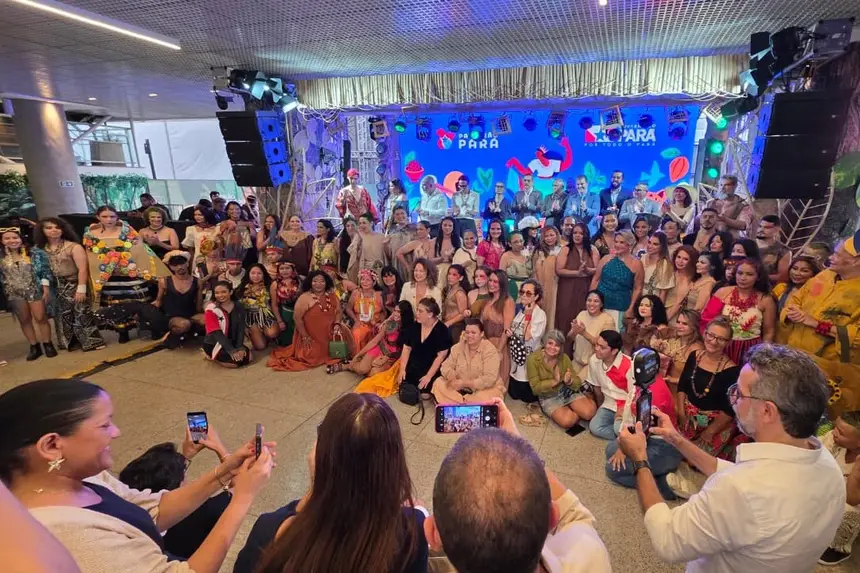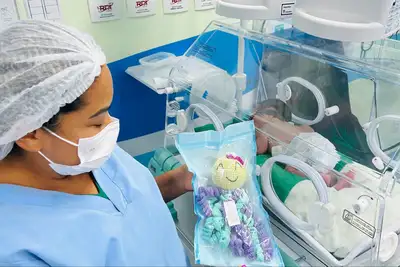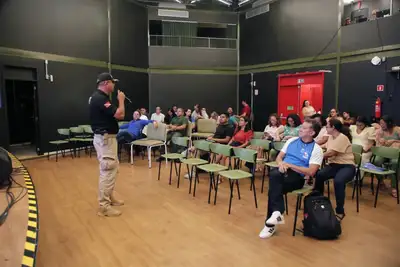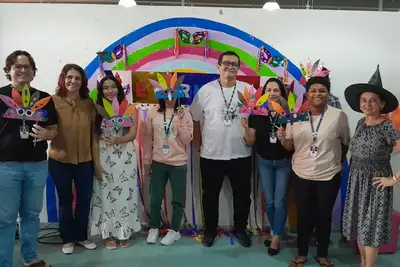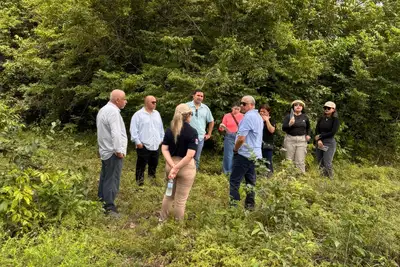State promotes a parade that unites fashion, sustainability, and social reintegration at COP30
An initiative by Seap transformed the Green Zone into a space of inclusion, sustainability, and appreciation, with the parade 'Amazon Resistance'
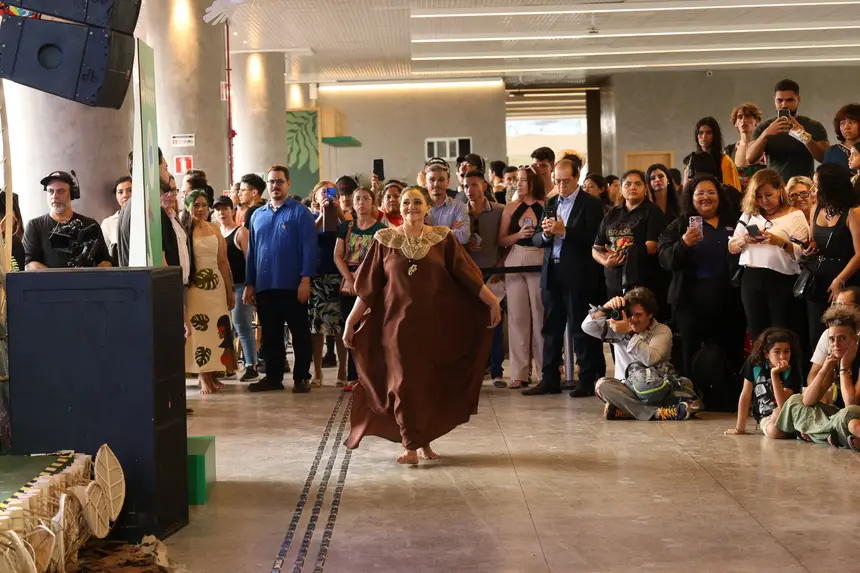
The Pará Pavilion, in the Green Zone of COP30, hosted the parade "Amazon Resistance: a parade in motion" on the afternoon of Tuesday (11). The initiative, promoted by the Government of Pará, through the State Secretariats of Penitentiary Administration (Seap) and Culture (Secult), presented the collection "Ya Temi Xoa – I am still alive", a creative partnership between designer Dan Delacosta and 22 women from the Social Work Cooperative Entrepreneurial Feminine Art (Coostafe), formed by inmates of the Pará penitentiary system.
Curated by Seap, the parade transformed the Green Zone into a space for expression and dialogue between art, sustainability, and social inclusion.
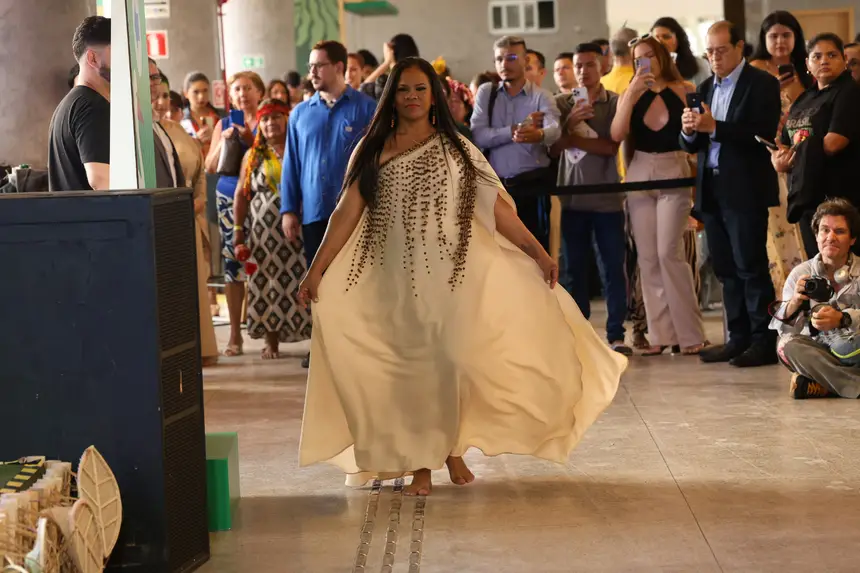
The collection brought together 30 costumes conceived in workshops led by designer Alcimara Braga, with the participation of youth from the Territories for Peace (TerPaz) program, indigenous people, and members of the LGBTQIA+ community, revealing a symbolic meeting between fashion, diversity, and new beginnings.
“Fashion is also a way for our bodies to speak about a public policy of valuing the creative economy, our Amazonian inputs, and also, what is most important, culture is a space for reintegration and social inclusion,” emphasized Ursula Vidal, Secretary of Culture of Pará.
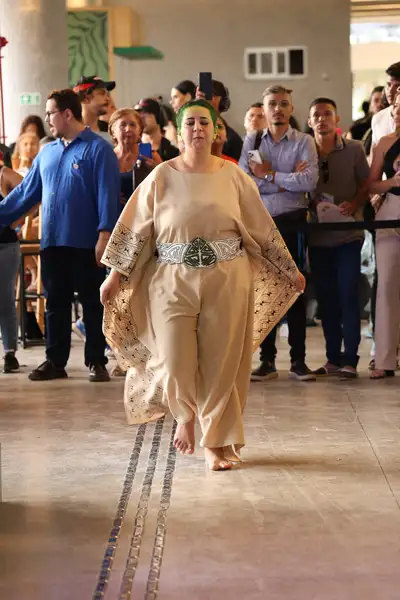
The parade brought together artists, models, and inmates of the Pará prison system. Among them was Nilse Bandeira, who celebrated the experience as a collective achievement. “It’s a lot of work, a lot of work from each one, like cutting, sewing, painting, it was something of many months working to give our best here on this day, which we waited for so long, it’s this day.”
The Secretary of Seap, Marco Antonio Sirotheau Corrêa Rodrigues, highlighted the positive impact of the work developed by the cooperative. “The work carried out by Coostafe is a successful example that social reintegration, through sustainability, work, and professionalization, can provide more dignity for people deprived of liberty,” pointed out the head of the department.
He also reinforced the importance of COP30 as an international showcase for the Pará prison system. "It is a great pride to have Seap included in the COP30 program. It is a moment when the State of Pará is in the spotlight for the whole world, and it is important that everyone becomes aware of the work being done by the State Government in the Pará prison system," said Sirotheau.
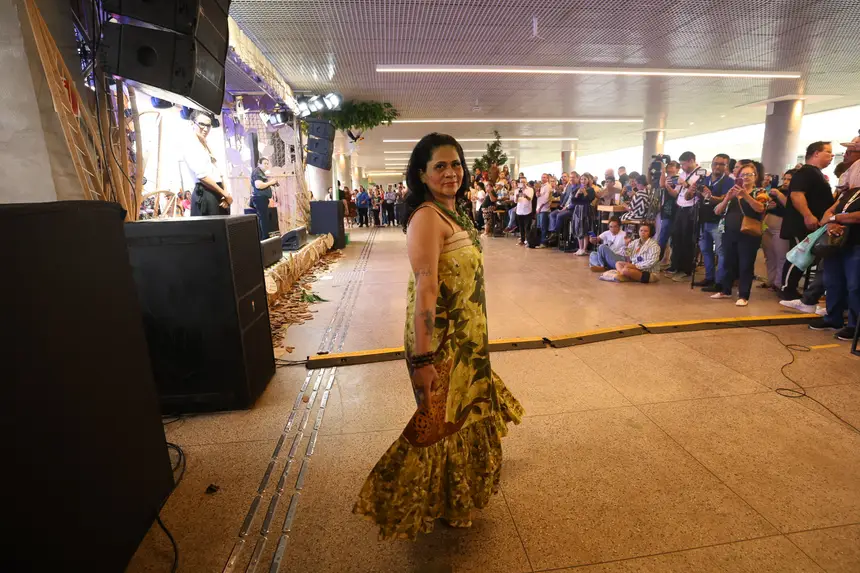
The collection was born from a collaborative process that brought together women deprived of liberty, youth from the peripheries, indigenous people, and members of the LGBTQIA+ community in creative workshops led by designer Alcimara Braga. The result of this plural meeting was the creation of 30 original costumes, accompanied by an original soundtrack composed by Pará musicians Tiago Belém and Thiago D’Albuquerque.
The collection stands out for the absence of size patterns and for valuing Amazonian ancestry, with inspirations that spring from the forest and indigenous cultures. Designer Dan Delacosta defines the creative process as symbolic and respectful.
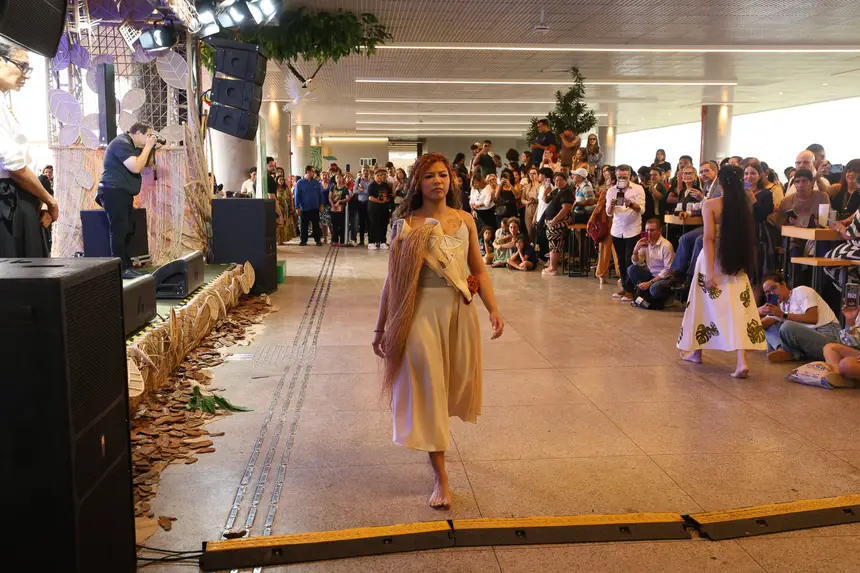
"The Parade communicates with this issue of the COP30 agenda, sustainability focused on the environment through recyclable materials, donated materials, through concepts that bring aesthetic references from the Amazon," he said.
Regarding the partnership with Coostafe and Seap, Dan highlighted the transformative work carried out by the cooperatives and the fundamental role of reintegration.
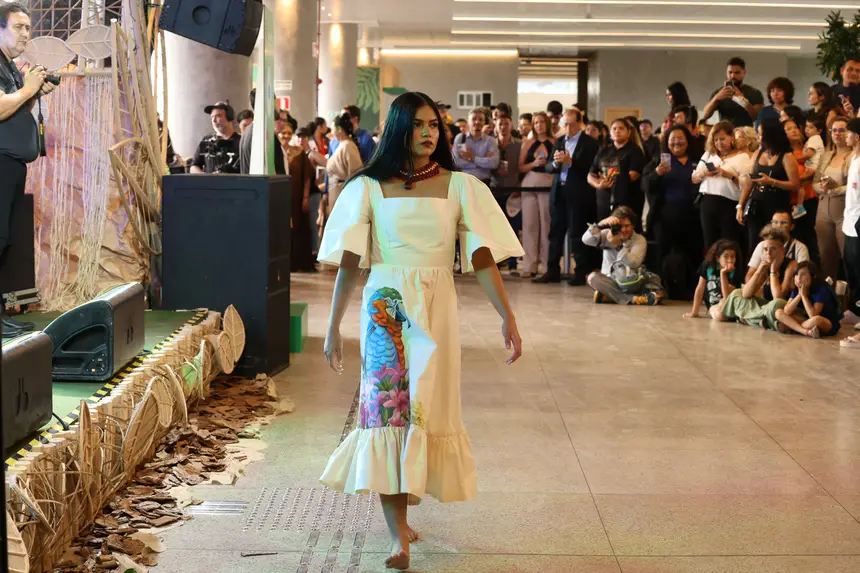
"You see their socialization, you see the usefulness they begin to have, feeling useful in society, and you also train a workforce so that they come into this process ready to integrate into society and the job market," highlighted the designer.
The initiative was a partnership that integrated the State Secretariats of Culture (Secult), Citizenship Articulation (Seac), Penitentiary Administration (Seap), the Court of Justice of the State of Pará (TJPA), and the Pará Academy of Music.
Text by Iego Rocha


